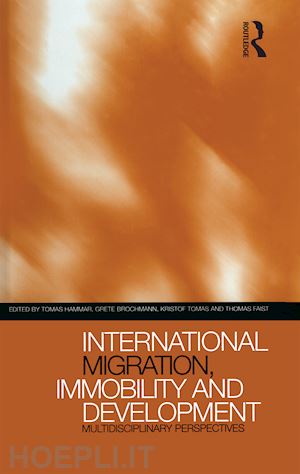The study of international migration and ethnic relations is rapidly expanding in the social sciences, in the humanities, and in law and medicine at universities around the world. Theories and methods are borrowed from many disciplines, but with little cross-fertilization, thereby leaving many core issues out. This authoritative book fills a gap by providing an expertly integrated overview of international migration from a wide range of disciplinary perspectives. Throughout the book, South to North migration is used as the main example.
The authors, leading experts in their fields, ask provocative new questions such as the counterfactual, Why do people not migrate?' and address old questions in fresh ways in a language accessible for students in a range of disciplines. Does migration from less developed countries stimulate or obstruct development? Does development reduce or increase the flows of migration? What are the dynamics of a migration process? Geography, economics, political science, social anthropology and sociology all inform this book, which is certain to become an established text in migration studies.
Contributors: Ishtiaq Ahmed, Associate Professor in Political Science, University of Stockholm, Sweden; Gunilla Bjeren, Associate Professor in Social Anthropology, University of Stockholm, Sweden; Grete Brochmann, Research Director at the Institute for Social Research, Oslo, Norway; Thomas Faist, Senior Researcher in Social Policy, University of Bremen, Germany; Peter A. Fischer, Senior Researcher at the Institute for Economic Policy Research, Bundeswehr University, Hamburg, Germany; Tomas Hammar, Professor and Director of the Centre for International Migration andEthnic Relations, University of Stockholm, Sweden; Kenneth Hermele, economist; Gunnar Malmberg, Associate Professor in Geography, Umea University, Sweden; Reiner Martin, Researcher at the Institute for Economic Policy Research, Bundeswehr University, Hamburg, Germany; Thomas S











